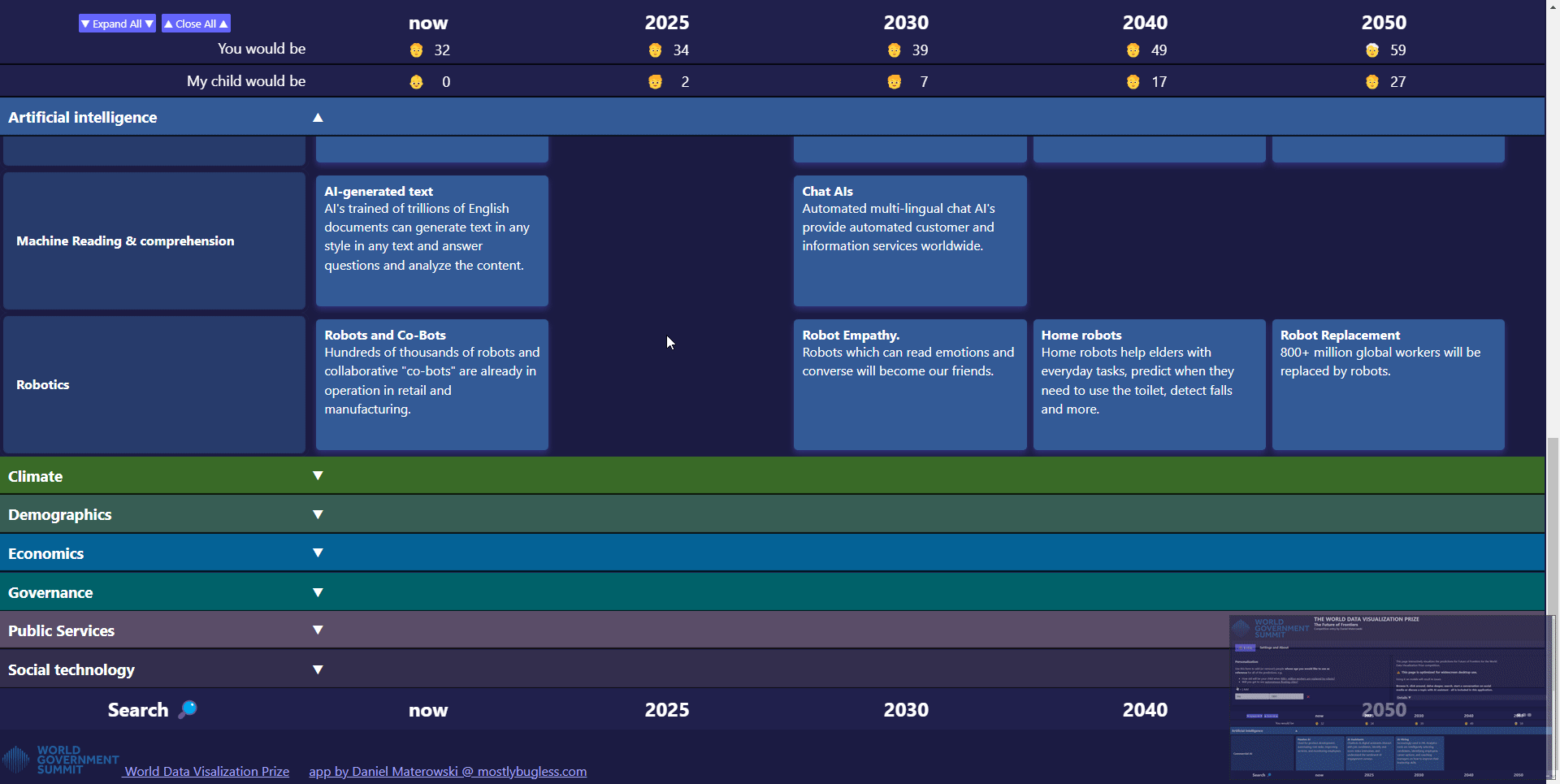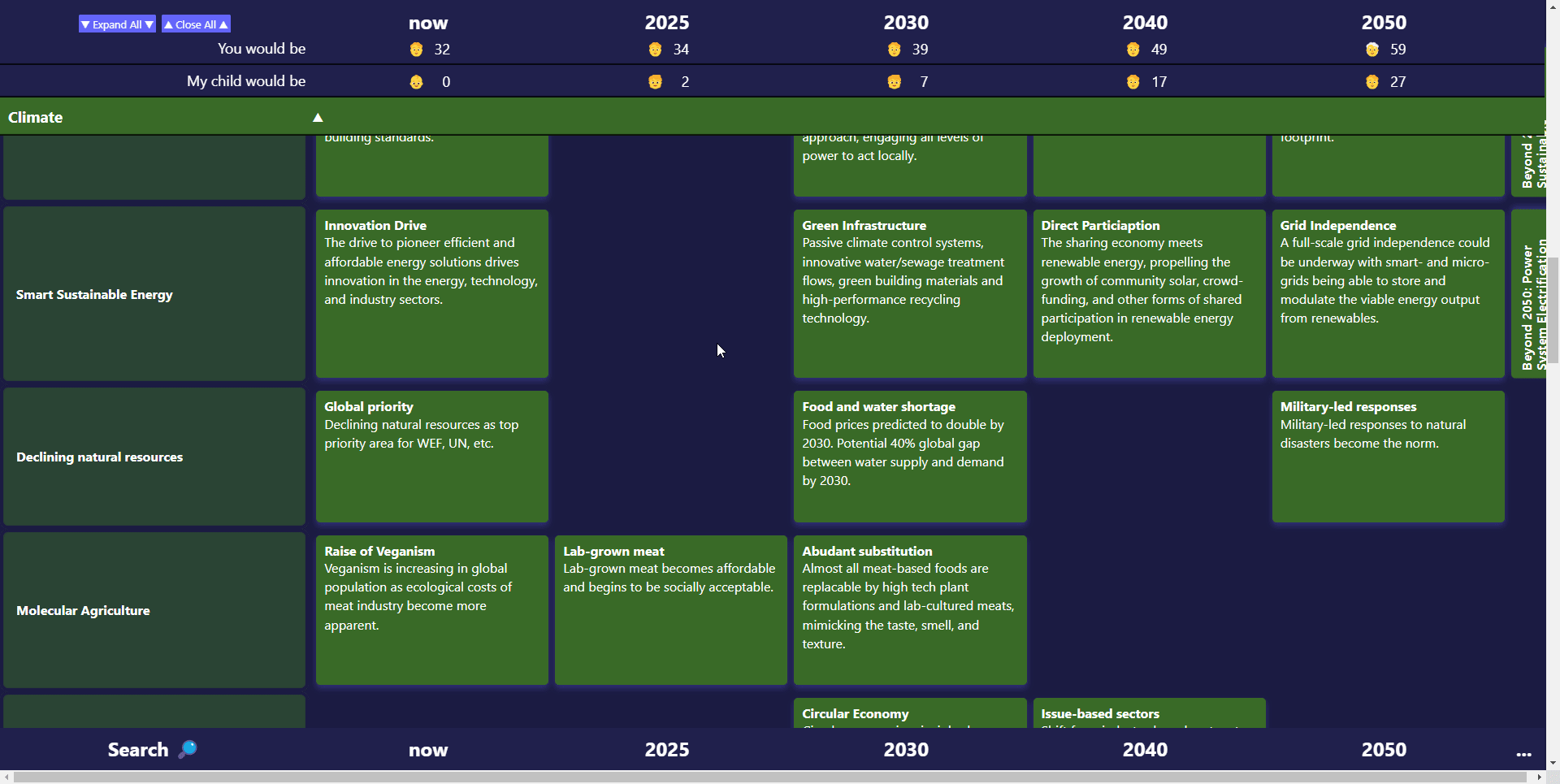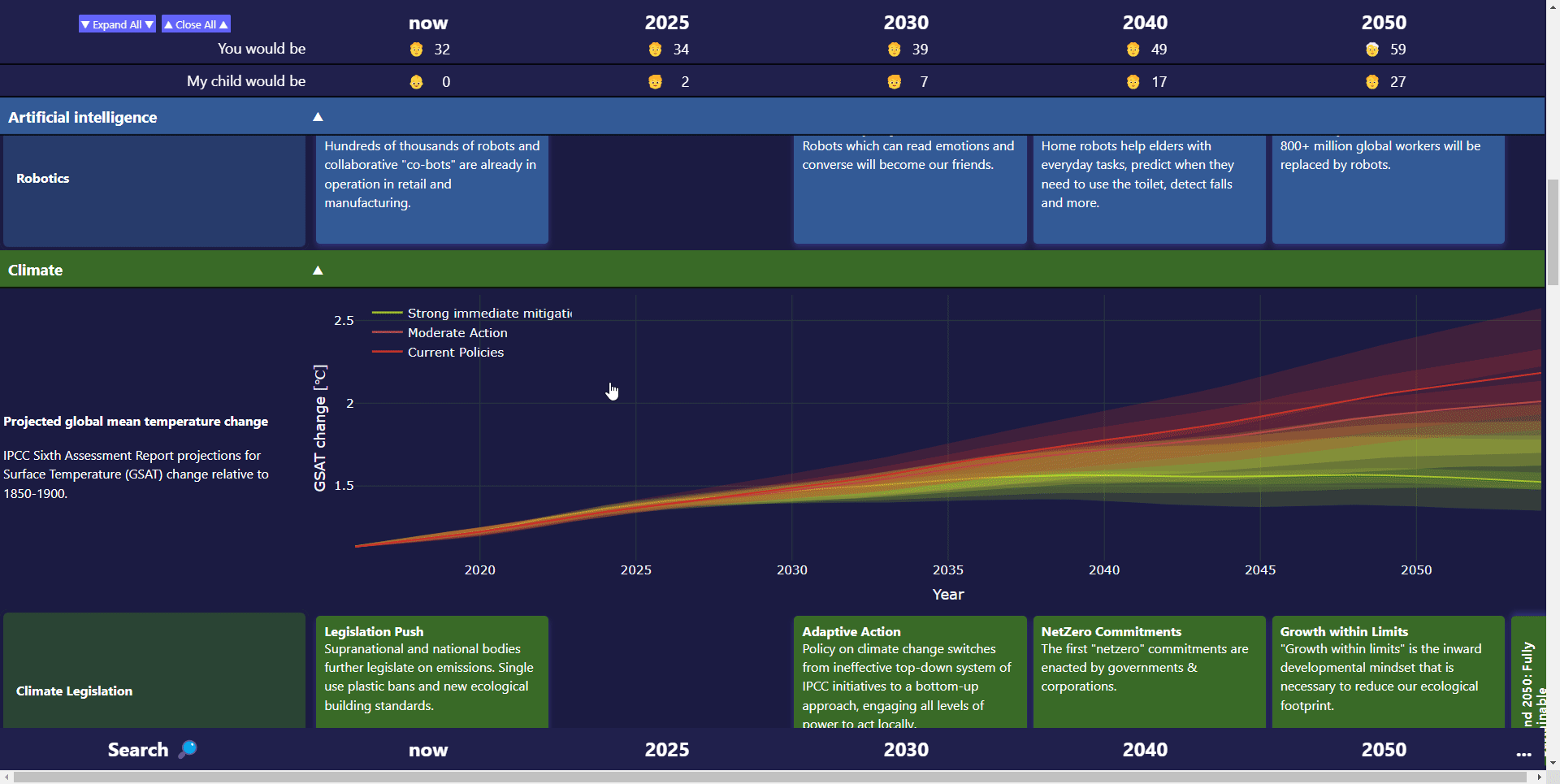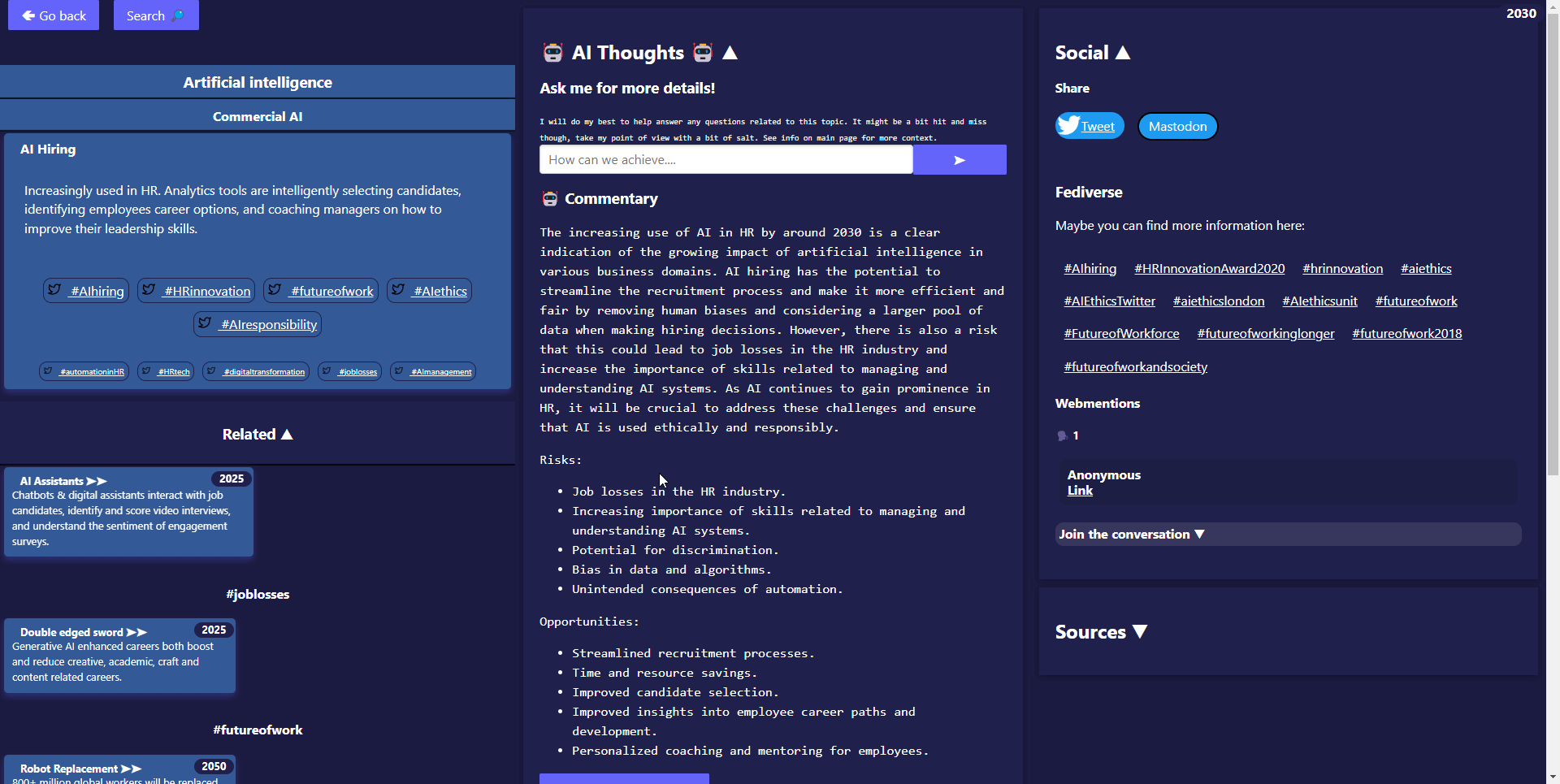Seems I have gotten around to reviving my site in a perfect time, as the moment I deployed first roughly functional version I got to know about World Data Visualization Prize. I wasn't expecting too much, having less than 2 weeks to deadline, while keeping full-time job and parental obligations (the MVP of this side project is definitely my wife who gave me lots of space to give it an honest try). Still, getting to a long-list and having below app actually finished on time, covering some of my long-overdue ideas and curiosity topics, was more than satisfactory result.
Basic idea #
I keep an extensive backlog of ideas, topics and worries. Since I forget about them when I write them down, it's a very effective way to keep my head clear. One recurring theme in the list was always predicting future. Or more specifically - visualizing what we can already understand about the future.
In the world marked by extreme technological revolutions, shifting geopolitical landscapes and unprecedented black-swan events (/cough/ covid /cough/), attempting to predict future seems futile. However there are certain aspects that won't change overnigh. Demographic trends won't pivot around in 10 years, CO2 won't vanish from our atmosphere. And we won't put the AI/Robotics genie back into a bottle. Numerous experts are already sharing their perspective, especially for specific domains. So predicting 2100 might be a strech, but summarizing what next 20-30 years could look like should be doable, no?
This theme has repeatedly resurfaced in my reflections,and I've come to realize it stems from a rather trivial concern - what will the world be like for my son and what hard questions will he throw my way once he reaches that delightfully inquisitive teenage phase (and safely assuming he might be less than thrilled with the world he's been handed).
And guess what has been pretty much exactly the topic of one of the 3 categories for this competition?
Future of Frontiers #
The dataset itself was quite trivial - but making it browseable and enriching it with AI generated content was definitely not simple. Without devling into details, I've added the application as a subpage on this site. It's not a technological masterpiece (and trust me, you don't want to peek at the code – I committed some unspeakable programming sins to meet my tight deadline!), but it did:
- Satisfy my urge of testing OpenAI ChatGPT Apis in practical scenario (itself worth a blog post)
- Visualize (and put in perspective) the upcoming predictions
- Allow me further dive into fediverse, although in hindsight, that integration didn't contribute much to the core objective
- Make me recall all the frustrations of front-end development - it still doesn't work properly on firefox and I'm not going to fix it (I was just trying to make a filled-in table!)
I found it quite fun, scary and interesting to see what experts from WGS think about future. Give it a whirl yourself following the link below, or see recorded GIFs in this article for quick overview.
Snapshots #
Contextualize predictions with your (or anybody else's) age #
Browse and explore future #
Search for specific topics #
Learn more, find more connections #
Get smart answers to your questions using LLM-supported chat #
- ⚠️ The chat is already disabled to control costs.
-






